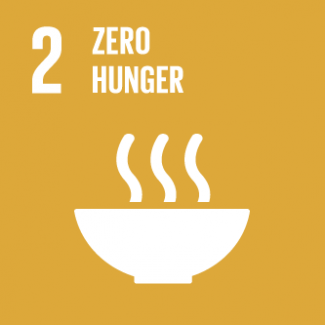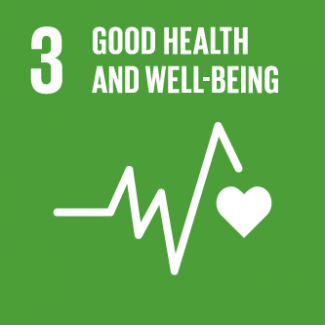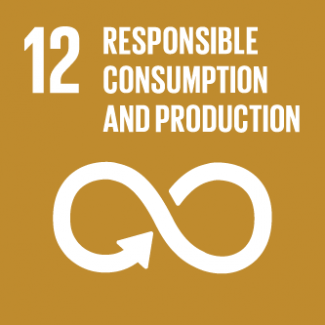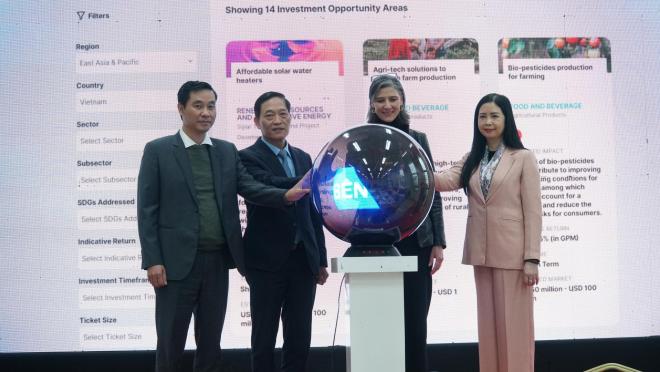Vietnam has been a development success story. Economic reforms since the launch of Đổi Mới in 1986, coupled with beneficial global trends, have helped propel Vietnam from being one of the world’s poorest nations to a middle-income economy in one generation. Between 2002 and 2021, GDP per capita increased 3.6 times, reaching almost US$3,700. Poverty rates (US$1.90/day) declined sharply from over 32 percent in 2011 to below 2 percent.
Thanks to its solid foundations, the economy has proven resilient through different crises, the latest being COVID-19. Vietnam was one of only a few countries to post GDP growth in 2020 when the pandemic hit. GDP growth slowed down to 2.58 percent in 2021 due to the emergence of the Delta variant but is expected to rebound to 5.5 percent in 2022.
Health outcomes have improved along with rising living standards. Infant mortality rates fell from 32.6 per 1,000 live births in 1993 to 16.7 per 1,000 in 2020. Life expectancy rose from 70.5 to 75.4 years between 1990 and 2019, the highest in the region for countries at a similar income level. Vietnam’s universal health coverage index is at 73—higher than regional and global averages—with 87 percent of the population covered.
Access to infrastructure services has increased dramatically. As of 2019, 99.4 percent of the population used electricity as their main source of lighting, up from just 14 percent in 1993. Access to clean water in rural areas has also improved, up from 17 percent in 1993 to 51 percent in 2020.
Vietnam has grown bolder in its development aspirations, aiming to become a high-income country by 2045. To do this, the economy would have to grow at an annual average rate of around five percent per capita for the next 25 years. Vietnam also aims to grow in a greener, more inclusive way, and has committed to carbon neutrality by 2050.
A few megatrends are shaping the future of Vietnam. The country’s population is rapidly aging and global trade is declining. Environmental degradation, climate change, and the rise of automation are growing. The ongoing COVID-19 crisis has accelerated these trends.
To rise up to these challenges and meet its development goals, Vietnam needs to dramatically improve its performance to implement policies particularly in finance, environment, digital transformation, poverty/social protection, and infrastructure, according to the World Bank’s latest Systematic Country Diagnostic Update.
Source: World bank's overview for Vietnam
Please access this link to the narrative report on the SDG Investor Map: SDG Investor Map Report 2022
14



Food and Beverage, Infrastructure, Renewable Resources and Alternative Energy
0.703
How is this information gathered?
SDG Investor Maps employ an 8-step methodology, combining data research and stakeholder consultations to identify Investment Opportunity Areas (IOAs) and potential business models with significant financial and impact potential.
Disclaimer
UNDP, the Private Finance for the SDGs, and their affiliates (collectively “UNDP”) do not seek or solicit investment for programmes, projects, or opportunities described on this site (collectively “Programmes”) or any other Programmes, and nothing on this page should constitute a solicitation for investment. The actors listed on this site are not partners of UNDP, and their inclusion should not be construed as an endorsement or recommendation by UNDP for any relationship or investment.
The descriptions on this page are provided for informational purposes only. Only companies and enterprises that appear under the case study tab have been validated and vetted through UNDP programmes such as the Growth Stage Impact Ventures (GSIV), Business Call to Action (BCtA), or through other UN agencies. Even then, under no circumstances should their appearance on this website be construed as an endorsement for any relationship or investment. UNDP assumes no liability for investment losses directly or indirectly resulting from recommendations made, implied, or inferred by its research. Likewise, UNDP assumes no claim to investment gains directly or indirectly resulting from trading profits, investment management, or advisory fees obtained by following investment recommendations made, implied, or inferred by its research.
Investment involves risk, and all investments should be made with the supervision of a professional investment manager or advisor. The materials on the website are not an offer to sell or a solicitation of an offer to buy any investment, security, or commodity, nor shall any security be offered or sold to any person, in any jurisdiction in which such offer would be unlawful under the securities laws of such jurisdiction.




















